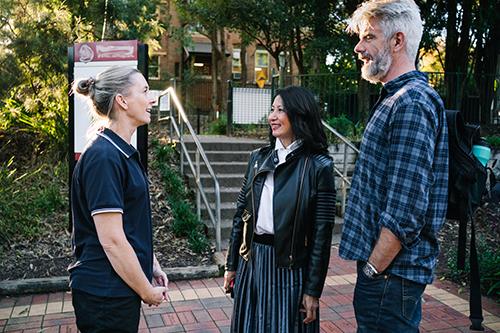Exceeding the NQS: Theme 3 – Practice is shaped by meaningful engagement with families and/or the community
- Home
- Latest news
- We hear you
- Exceeding the NQS: Theme 3 – Practice is shaped by meaningful engagement with families and/or the community

In previous issues, we unpacked the important steps when analysing potential high quality practices, reviewing Theme 1 – Practice is embedded in service operations and Theme 2 – Practice is informed by critical reflection. The last of the Exceeding series takes us to Theme 3 – Practice is shaped by meaningful engagement with families and/or the community.
There is a significant difference between engaging with families at the Meeting NQS level compared to meaningful engagement at the Exceeding NQS level. Meaningful engagement is more than offering opportunities for families to participate in service events or sharing information about the children or the service.
When considering the difference, services are encouraged to consider if their engagement:
- is ongoing and consistent
- ensures families and/or the community have a pivotal role in service decision making
- values and seeks different ways to engage with families and/or the community
- leads to working on solutions together
- fosters a culture of inclusiveness and sense of belonging
- is tailored to the unique context of the families, children and/or the community.
The service needs to provide evidence to demonstrate they have meaningfully engaged with one or more of their stakeholders which may include past, current or future families or the community.
How do authorised officers determine if practices have been shaped by meaningfully engaging with families and/or the community at an exceeding level?
Similar to our previous themes, authorised officers will begin to gather evidence for this theme through observations and discussions with service educators and staff. Discussions on service practice, projects and changes to service operations may include how families and/or the community have been involved or integral in the service decision making processes. This will prompt the authorised officer to seek further information through more discussions about examples, through observations or reviewing documentary evidence relevant to the practice that has been discussed.
Once the engagement has been established as meaningful, an authorised officer will then determine if this has supported the service to develop and shape policies, programs and practices that reflect the unique cultural and community context in which the service operates.
At an exceeding level, the service should reflect on the feedback, guidance or knowledge from families, children and the community and use this to change or refine an existing practice, process or approach within the Standard being considered.
When a service shapes their practices by meaningfully engaging with families and the community, they recognise, respect and build on the diverse factors that make their service unique. They view responsive, reciprocal and ongoing relationships as central to the culture of the service.
More information
For more information about Exceeding themes, visit our Exceeding the NQS webpage which includes a series of case studies that offer practical and illustrative examples of what high quality practice may look like for each Standard in a variety of settings. Our information sheet on New Guidance on Determining Exceeding NQS for Standards is a helpful resource which clarifies the difference between Meeting NQS and Exceeding NQS levels.
You may also like to read the previous articles in this We Hear You Blog series:


